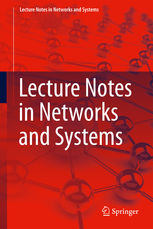Scope
Optimisation of existing resources has become an area of great interest for both the public and private transport sector. For example, car sharing systems, such as bicycle or car sharing systems, have been proposed as a solution to optimise the number of existing vehicles and traffic, and as a means to contribute to a cleaner environment.
In the same line, physical activity plays an important role in the health of citizens in today's cities. Activities such as walking or cycling outdoors are two ways to promote physical activity. However, in cities it is not always easy to find safe and healthy routes (e.g. low pollution, low noise, green areas, low traffic, safe, etc.) for these activities. It is necessary to promote the substitution of certain activities that are mostly carried out in polluting transport vehicles by cleaner and healthier alternatives that, at the same time, involve more physical exercise, such as cycling. In view of this situation, both companies and public administrations are very interested in having tools that allow them to automatically promote activities aimed at a more active mobility of citizens.
Topics
The aim of this technical workshop is to present the research ICT services that will facilitate the transition towards a more urban sustainable mobility model. The session aims to investigate in solutions to promote active (and thus healthy) and environmentally sustainable mobility. The solution aims to make use of technologies such as:
Intelligent Transportation Systems (ITS):
- Developments in smart traffic technologies.
- Implementation of transportation management systems.
- Integration of sensors and technologies for traffic monitoring.
- Agent-based Simulation in Transportation.
Sustainable Urban Mobility:
- Design of sustainable and pedestrian-friendly cities.
- Strategies to reduce traffic congestion.
- Promotion of non-polluting means of transportation.
Smart Public Transportation:
- Innovations in public transportation systems.
- Applications and platforms for efficient route management.
- Electronic payment solutions and accessibility.
Autonomous and Connected Vehicles:
- Development and regulation of autonomous vehicles.
- Vehicle-to-vehicle (V2V) and vehicle-to-infrastructure (V2I) communication.
- Safety and ethics in autonomous driving.
Internet of Things (IoT) in Mobility:
- Smart sensors for traffic management.
- IoT devices for monitoring air quality.
- IoT applications for road safety.
Renewable Energies in Mobility:
- Electric vehicles and their charging infrastructure.
- Development of energy storage technologies.
- Integration of renewable energies in transportation.
Mobile Applications for Mobility:
- Apps for route planning and public transportation.
- Shared mobility solutions and vehicle rentals.
- Development of applications promoting sustainable transportation.
Big Data and Analytics for Mobility:
- Use of large datasets to enhance mobility.
- Predictive analysis for traffic management.
- Privacy and ethics in mobility data collection.
Education and Awareness in Sustainable Mobility:
- Educational campaigns to encourage responsible transportation use.
- Initiatives to promote active mobility such as walking and cycling.
- Citizen participation in mobility planning.
Future Developments in Intelligent Mobility:
- Emerging trends in mobility technologies.
- Research and development of new transportation modes.
- Impact of artificial intelligence on mobility.
Organizing Committee
- Vicente Julián- Universitat Politècnica de València (Spain)
- Adriana Giret - Universitat Politècnica de València (Spain)
- Juan Manuel Corchado - Universidad de Salamanca (Spain)
- Sara Rodríguez - Universidad de Salamanca (Spain)
Program Committee
To be announced

